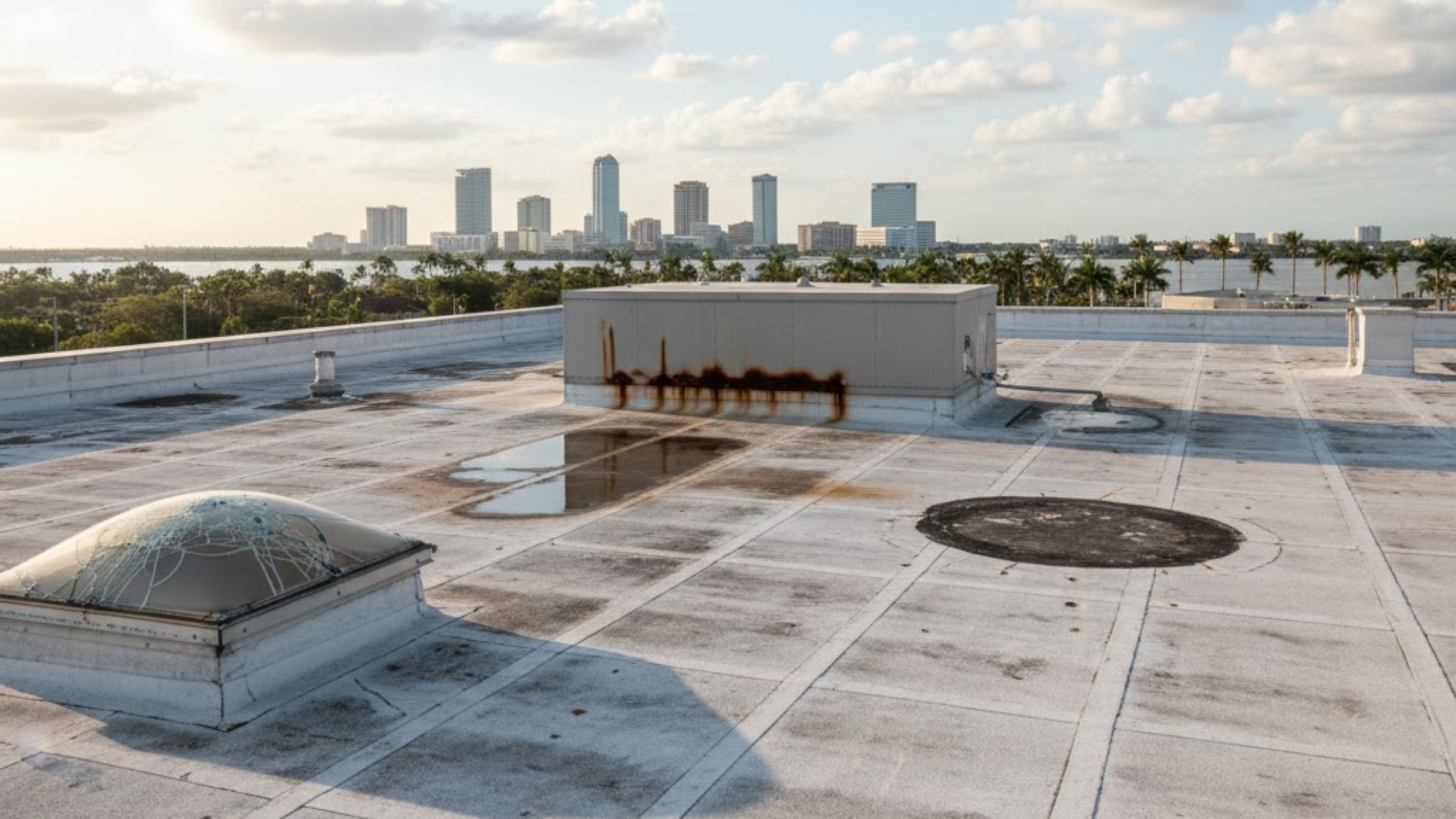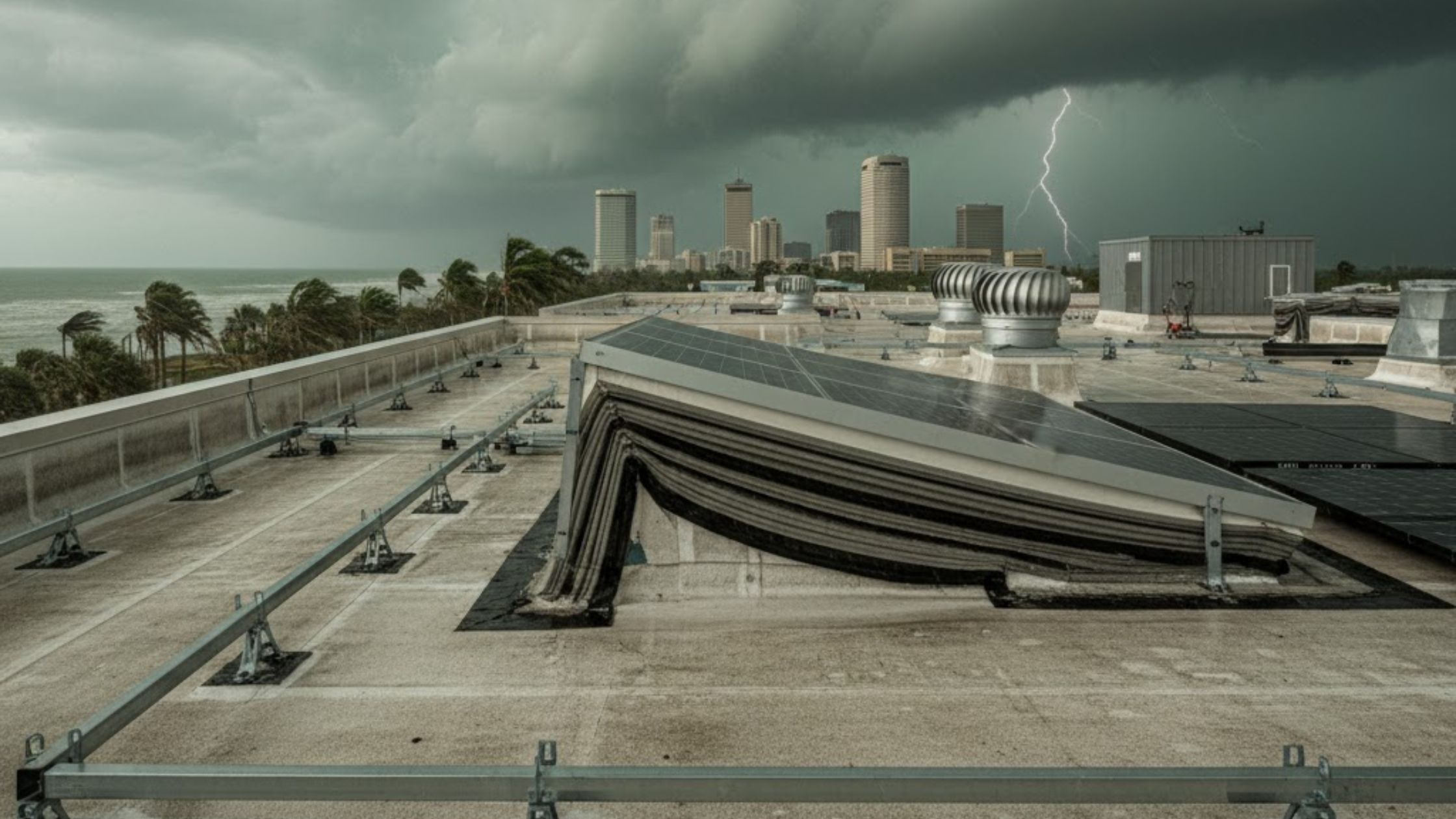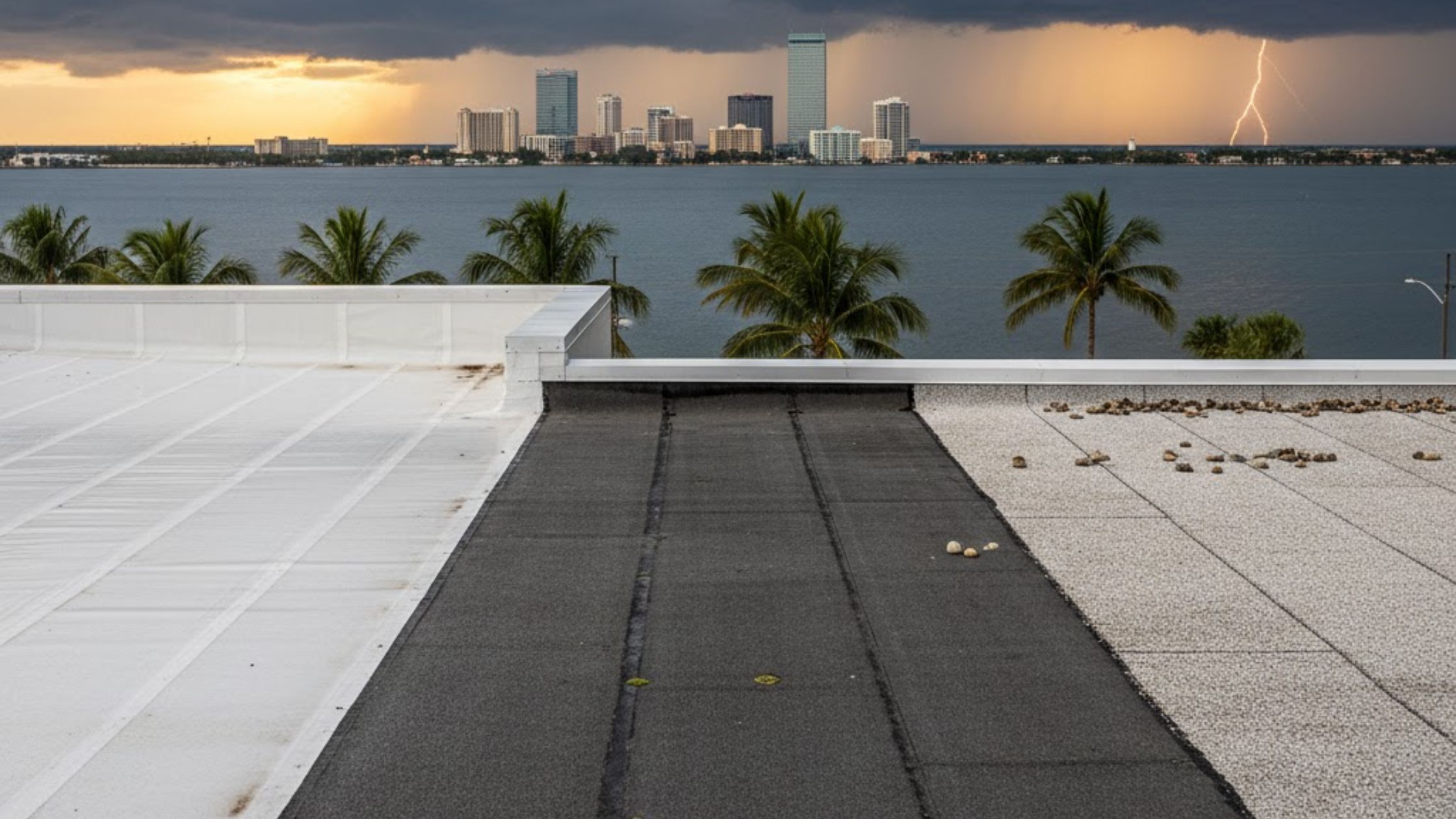How to choose a reliable residential roofing contractor for your home?
Learn how to select a trusted residential roofing contractor for your home. Discover key factors like licensing, warranties, reviews, and quality workmanship.

Safeguarding your home’s most vital shield—its roof—starts with selecting a trustworthy residential roofing contractor in Tampa’s challenging climate. A top-notch contractor brings licensed expertise, comprehensive insurance, proven local experience, clear pricing, and quality materials to ensure your investment stands strong against hurricanes and relentless sun. This guide will walk you through:
- Why dependability is key in Tampa’s unique weather patterns
- Which licenses, insurance, and certifications to look for
- How to gauge a contractor’s reputation through reviews and references
- What to expect in detailed quotes, agreements, and warranties
- The most resilient and energy-smart roofing materials for Florida homes
- Essential questions to ask every roofing professional
- How CB Roofing Solutions sets the standard for reliability
- The straightforward steps to get your free, accurate roofing quote
Why Is a Reliable Residential Roofing Contractor So Important in Tampa?
A reliable residential roofing contractor delivers enduring protection, completes projects on time, and adheres to local building codes, preventing future issues and financial headaches. A dependable roofer minimizes unexpected repairs, mitigates storm damage, and maintains your home’s energy efficiency. For instance, a contractor who acts fast after a hurricane can significantly reduce water damage and mold, safeguarding your home’s structure and your family’s health.
What Climate Challenges in Tampa Impact Roofing Contractor Performance?
Tampa’s subtropical climate puts roofing systems to the test with:
- High Heat and Humidity that speed up shingle wear and sealant degradation.
- Intense Sunlight leading to UV damage and expansion/contraction cycles.
- Seasonal Hurricanes creating extreme wind pressure and driving rain.
How Does a Dependable Roofer Protect Your Home from Hurricanes and Heat?
A skilled roofing professional uses enhanced fastening methods, robust underlayment, and impact-resistant shingles designed to withstand winds over 130 mph. They also incorporate reflective coatings and proper ventilation to cut attic heat buildup by up to 30 percent. By combining storm-ready techniques with smart thermal management, your roof can effectively repel heavy rain and lower your energy bills, keeping your home comfortable and structurally sound. For more information on various roofing solutions, you can visit our services page.
Why Opt for a Local Roofing Contractor with Tampa Area Expertise?
Local expertise means a contractor is well-versed in Tampa’s building regulations, permitting procedures, and typical wind-driven rain patterns. A Tampa-based company has established relationships with suppliers of approved materials, can secure timely inspections, and tailors ventilation solutions to Florida’s humidity. This local presence simplifies communication, speeds up scheduling, and builds trust through community standing.
What Licenses, Insurance, and Certifications Should You Confirm Before Hiring?
Confirming a contractor’s credentials—their state license, liability insurance, and any manufacturer certifications—ensures legal compliance, financial protection, and quality installation. For example, choosing a GAF Master Elite contractor, a designation held by only the top 3 percent of roofers nationwide, grants access to superior material warranties and specialized training.
How Do You Verify a Contractor’s License in Florida?
You can check a contractor’s license through the Florida Department of Business and Professional Regulation’s website or by contacting them directly. Verify that the license is current, note the issue and expiration dates, and review any past disciplinary actions. Always ask for a printed copy of their license before any work commences.
What Types of Insurance Should a Trustworthy Roofer Carry?
Before any roofing work begins, it's essential that a reliable residential roofer carries valid insurance policies to protect both the homeowner and the workers. Two key types of coverage are General Liability Insurance and Workers’ Compensation Insurance. General Liability Insurance covers any property damage or injuries that might occur on your property during the roofing process. Workers’ Compensation Insurance, on the other hand, protects you from liability in case employees suffer on-site injuries. Having these policies in place ensures that you won’t be held financially responsible if roofing debris damages your landscaping or if a worker gets hurt while on the job.
Which Manufacturer Certifications Signal Roofing Expertise?
When selecting a roofing contractor, it's wise to prioritize those who have earned top-tier certifications from leading shingle and roofing system manufacturers. For example, a Master Elite Contractor certified by GAF is eligible for enhanced warranties and gains access to advanced technical support. Similarly, contractors with Platinum Preferred status from Owens Corning have demonstrated a strong commitment to strict quality and installation standards. These certifications reflect a contractor’s dedication to ongoing training, ethical business practices, and a direct endorsement from the manufacturers of the roofing materials they use.
How Do Tampa Building Codes Affect Contractor Licensing Requirements?
Tampa’s building codes require compliance with Miami-Dade product approvals, High Velocity Hurricane Zone (HVHZ) standards, and local permits for re-roofing projects exceeding 10 percent of the roof area. A licensed contractor must submit plans to the Hillsborough County building department, arrange for inspections at each stage, and ensure adherence to wind-uplift ratings, proper tile fastening, shingle application patterns, and roof deck connections.
Florida’s High Velocity Hurricane Zone (HVHZ) Building Standards
The High Velocity Hurricane Zone (HVHZ), encompassing Miami-Dade and Broward counties, features Florida’s most rigorous building code requirements. Products that receive a Miami-Dade Notice of Acceptance (NOA) meet these stringent criteria. Products with a statewide Florida Product Approval that includes HVHZ endorsement are recognized across the state, offering superior protection against severe wind events.This confirms the article’s focus on the importance of Miami-Dade product approvals and HVHZ standards for roofing contractors operating in Florida.
How Can You Evaluate a Roofing Contractor’s Reputation Through Reviews and References?
A contractor’s reputation is a reflection of their consistent quality, clear communication, and customer satisfaction across numerous projects. Checking feedback from various sources helps ensure you’re choosing a qualified provider.
Where Can You Find Reliable Online Reviews for Tampa Roofers?
- Google Business Profile for aggregated local ratings and dated feedback
- Better Business Bureau for accreditation status and complaint records
- Yelp for in-depth accounts of customer experiences
Compare ratings across these platforms to spot consistent praise or recurring issues.
What Questions Should You Ask Past Customers for Solid References?
When you speak with previous clients, ask about:
- Project Completion – “Did the contractor finish the work as scheduled?”
- Quality of Work – “Were the flashing and underlayment installed according to the plan?”
- Communication Flow – “How often did you receive updates on the project’s progress?”
- After-Project Service – “How did the roofer handle any warranty claims or follow-up requests?”
Why Is Hiring a Locally Established Roofing Company Advantageous?
Established Tampa companies possess deep knowledge of local roofing styles, code updates, and weather patterns. Local businesses value their community reputation, maintain readily accessible material inventory, and can respond more quickly for emergency repairs after major storms.
What Should a Detailed Roofing Estimate and Contract Include?
A thorough estimate and contract clearly outline the project’s scope, costs, and protections, preventing unexpected changes, hidden fees, or warranty disagreements.
How Should You Review and Compare Roofing Estimates?
Carefully examine each estimate for:
- Scope of Work detailing old roof removal, underlayment specifics, and flashing replacement
- Itemized Costs breaking down labor, materials, and permit fees
- Project Schedule including the start date, key inspection points, and estimated completion
- Payment Schedule linking payments to project milestones
Comparing these details ensures cost clarity and aligns expectations before you commit.
What Contract Clauses Offer Homeowners Protection During Roofing Projects?
Key contract provisions to look for include:
- Scope Definition to prevent unapproved additions
- Change Order Process for managing any agreed-upon modifications
- Lien Waivers confirming subcontractors and suppliers have been paid
- Termination Clauses outlining conditions for canceling the agreement and any associated fees
These clauses help avoid disputes and maintain control over the project.
How Do Material and Workmanship Warranties Differ?
Material warranties cover defects in how the product was manufactured, while workmanship warranties guarantee the quality of the installation itself.
What Are Typical Warranty Durations for Residential Roofing?
When evaluating a roofing contractor, it's important to understand the types of warranties offered. A Material Warranty, typically provided by the manufacturer, covers defects in the roofing materials and usually lasts between 25 to 50 years. In contrast, a Workmanship Warranty is issued by the contractor and covers installation errors, generally ranging from 1 to 10 years. Together, these warranties offer peace of mind by ensuring both the quality of the materials and the reliability of the installation.
What Are the Most Durable and Energy-Efficient Roofing Materials for Tampa Homes?
Choosing resilient, reflective materials enhances storm resistance and reduces cooling demands, leading to lower maintenance and utility costs.
Why Are Asphalt Shingles Still a Popular Choice for Residential Roofs?
Asphalt shingles offer proven water resistance, straightforward installation, and affordability. Impact-resistant options are rated Class 4, capable of withstanding winds up to 130 mph. Their wide range of colors enhances curb appeal, and reflective granule blends can improve solar reflectivity.
Performance of Class 4 Impact-Resistant Shingles
Class 4 impact-resistant shingles are engineered to endure significant impacts, such as those from hailstones, and are designed to deflect debris in winds reaching 110-130 miles per hour. These shingles undergo rigorous UL 2218 testing, where they must withstand the impact of a 2-inch steel ball dropped from 20 feet without cracking or tearing, ensuring superior durability against severe weather.This information supports the article’s points about the durability and resistance of high-performance asphalt shingles, particularly those with a Class 4 rating, to wind and impacts.
How Does Metal Roofing Provide Storm Resistance and Energy Savings?
Metal panels interlock securely, resisting wind uplift exceeding 140 mph and easily shedding debris. They can reflect up to 70 percent of solar radiation, helping to lower attic temperatures and potentially reduce cooling costs by 10–25 percent in Florida’s climate.
Energy Efficiency of Reflective Metal Roofing in Florida
Research conducted in Florida indicates that highly reflective metal roofs can substantially decrease cooling expenses, with some studies showing reductions of 10-40% in annual cooling costs. Investigations by the Florida Solar Energy Center (FSEC) and Oak Ridge National Laboratory (ORNL) have further demonstrated that white reflective roofs can lower cooling energy use by 18-26% and peak demand by 28-35% in hot climates.This research directly validates the article's claims regarding reflective coatings and metal roofing’s ability to reduce attic heat gain and lower cooling expenses in Florida’s demanding weather conditions.
What Other Storm-Proof and Eco-Friendly Roofing Options Are Available?
Homeowners might consider:
- Clay and Concrete Tiles rated for high-velocity zones, offering natural thermal mass
- TPO Membranes for flat or low-slope roofs, providing UV resistance and recyclability
- Cool Roof Coatings applied to existing roofs to enhance reflectivity and extend their lifespan
What Key Questions Should You Ask Residential Roofers Before Hiring?
A focused conversation can reveal a contractor’s qualifications, safety practices, and financial arrangements, ensuring they align with your project needs.
How Can You Vet Roofing Contractors’ Experience and Crew Qualifications?
Inquire about:
- Years in Business to confirm their stability through various economic conditions
- Crew Certifications to verify manufacturer training and safety credentials
- Project Portfolio to review examples of similar Tampa home installations, including photos
Experienced crews ensure proper installation of flashing and sealants, preventing leaks and meeting wind-uplift requirements.
What Should You Ask About Project Timeline and Safety Protocols?
Clarify the following:
- Start and Completion Dates to help you plan your living arrangements
- Daily Cleanup Procedures to protect your landscaping and walkways
- On-Site Safety Measures such as fall protection equipment, harnesses, and debris containment systems
Asking these questions ensures minimal disruption and protects everyone on site.
How to Confirm Use of Licensed Subcontractors and Proper Permits?
Request:
- A List of Subcontractors to verify that each party holds the appropriate licenses and insurance
- Copies of Permits to confirm that inspections are scheduled for key stages like tear-off, decking, and final completion
This due diligence ensures all work complies with Hillsborough County building standards.
What Financing Options and Payment Plans Are Available?
Investigate:
- Low-Interest Loans offered through roofing manufacturers or local financial institutions
- Installment Plans that may align with tax credits for energy-efficient upgrades
- Deferred Payment Programs for installations of hurricane-resistant systems
Understanding your financing choices can help you budget for significant replacements without immediate financial strain.
How Does CB Roofing Solutions Demonstrate Reliability and Expertise in Tampa?
CB Roofing Solutions exemplifies dependable residential roofing through its verified credentials, transparent processes, and a proven track record of successful projects throughout the Tampa area.
What Local Certifications and Licenses Does CB Roofing Solutions Hold?
CB Roofing Solutions holds an active Florida roofing license (CRC1329876), carries $2 million in general liability coverage, and maintains workers’ compensation policies. As a GAF Master Elite Contractor, the team is qualified for extended material warranties and advanced manufacturer training. For more information, visit CB Roofing Solutions.
How Do Customer Testimonials Reflect CB Roofing Solutions’ Quality?
Clients consistently praise CB Roofing Solutions for completing projects on time, maintaining clear communication, and performing meticulous cleanup. Recent feedback highlights a hurricane restoration project in South Tampa that was finished two days ahead of schedule, demonstrating their efficiency and expertise in storm-related repairs.
What Tampa-Specific Roofing Challenges Has CB Roofing Successfully Addressed?
CB Roofing Solutions has replaced aging shingle systems susceptible to heat-related cracking, implementing reflective underlayments and ridge vent upgrades that reduced attic temperatures by 15 percent. Following a Category 4 storm, the team provided emergency tarping and completed full deck repairs within 24 hours, swiftly restoring home integrity.
How to Request a Free Quote and Start Your Roofing Project with Confidence?
Beginning your roofing project is made simple with a clear, no-obligation estimate process designed to gather necessary details and align the project scope with your budget.
What Information Do You Need to Provide for an Accurate Estimate?
Be prepared to share:
- Roof Dimensions, which can be provided via property plans or satellite measurements
- Current Roof Condition, including recent photos of any damage
- Desired Materials and color preferences
- Access and Scheduling Constraints that might affect crew mobilization
Providing this information allows for precise cost projections and effective timeline planning.
How Does CB Roofing Solutions Ensure Transparent Communication?
CB Roofing Solutions assigns a dedicated project coordinator who provides daily progress updates, digital photo documentation, and serves as your primary point of contact for any questions. This open communication approach fosters trust and prevents unexpected issues.
What Are the Next Steps After Receiving Your Roofing Estimate?
Once you’ve reviewed your detailed proposal, you will:
- Approve the scope of work and sign the contract, noting the clear payment milestones.
- Schedule the permit submission and inspection dates.
- Coordinate material delivery and choose a convenient start date.
After permits are secured, the crew will begin site preparation, tear-off, installation, and the final inspection, ensuring your new roof meets Tampa’s rigorous standards.
Protect your home and family by selecting a truly dependable residential roofing contractor—partner with CB Roofing Solutions for expert advice, certified workmanship, and lasting performance under Florida’s most demanding conditions.



